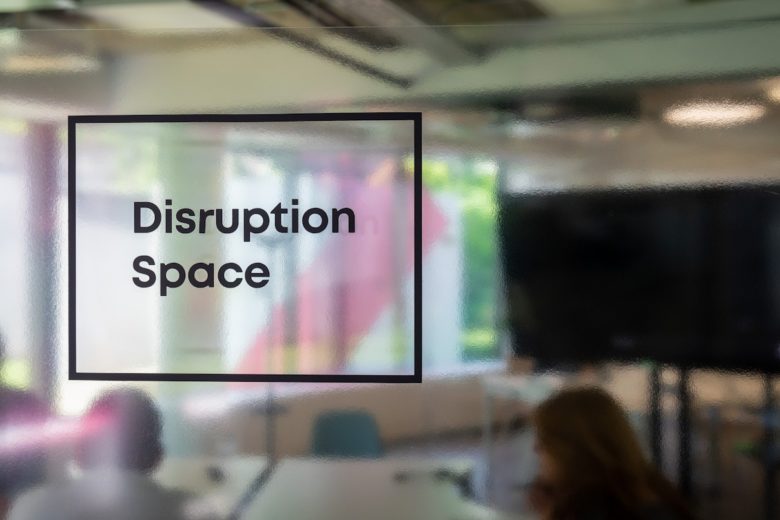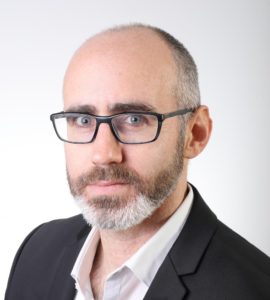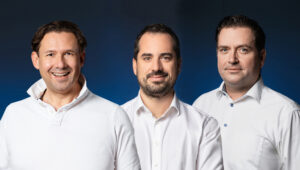When A Corporation Enters A Partnership With A Startup It’s Crucial To Share Particular Expectations In Advance

 As the head of the Visa Innovation studio Tel-Aviv and Director Venture and Startup Engagement, Shahar Friedman is responsible for driving Visa’s activities with the tech ecosystem in Israel including venture investments, client innovation and co-creation, PoC’s and commercial partnerships. As currently, Eleven Ventures is running The Visa Innovation Program in Bulgaria, that aims to support fintech startups pilot products with Visa’s clients and partners, the first cohort of the program was invited to Tel Aviv to gather a sense of how large financial companies function.
As the head of the Visa Innovation studio Tel-Aviv and Director Venture and Startup Engagement, Shahar Friedman is responsible for driving Visa’s activities with the tech ecosystem in Israel including venture investments, client innovation and co-creation, PoC’s and commercial partnerships. As currently, Eleven Ventures is running The Visa Innovation Program in Bulgaria, that aims to support fintech startups pilot products with Visa’s clients and partners, the first cohort of the program was invited to Tel Aviv to gather a sense of how large financial companies function.
Shahar Friedman is an experienced professional, with a strong technical and business understanding of the payments industry, new trends, and emerging technologies. Indeed, between 2014 and 2017, he frequently traveled to Bulgaria, as he was leading Visa’s digital innovation initiatives in SEE. His role also includes facilitating the communication between the corporate and the entrepreneurial world with the final goal to identify new products and services. So we thought there’s no better source of information and know-how on doing corporate innovation than him. Here’s what we learned:
Can you give a brief overview of how the Visa innovation studio is operating and what are the philosophy and the concept behind it?
Shahar Friedman: If you look at VISA in the past 60 years, we have an amazing track record in introducing innovation and being the partner of choice for financial institutions that want to bring new payment solutions to the market. However, we also realize that when a startup company comes to us, we need to make some changes to be able to support them. We had to go through a transformational shift in our culture and the way we look at startups and early-stage companies. We launched various programs to support collaboration. For instance, take our most prominent solution VISA issuance. Previously it was quite hard for young companies to meet the criteria and the standards. First, because they need to move fast in the space, and secondly – they don’t have the resources that more mature companies have. We came up with the Fintech Fasttrack program, and the result is impressive. We are now able to onboard startups in four weeks to the ecosystem. We did that by internal work, changing the processes and working with the internal team, but also bringing in third parties intermediaries like Solaris Bank, to help us facilitate that program.
Could you give a practical example of how such collaborations work?
An example is the venture program that we launched a year ago. Visa invests in companies that not only provide commercial benefit for VISA but also provide platforms that can impact. We are focused on opportunities related to consumer demand, subscription-based payments, the rise of online marketplaces. For instance, we invested in a company called Mina from the Nordics, that provides services to optimize the management of recurring payments for utilities and subscription services. Regulations like open banking drive other opportunities. We invested in Bankable that provides banking as a service and allows our partners to launch new services using their infrastructure.
What were the processes you needed to reshape in Visa in order to be able to work with young companies?
When you look at Visa issuance, that’s a process that needs to go through compliance, and finance and processing, to make sure the company meets all our standards. We work closely with those young teams to make sure that they still meet the standards. We retrofitted the processes to be able to work with early-stage ventures. In Tel Aviv, our team is very well embedded in the payment ecosystem and we have great outreach to companies, but also work with VCs and acceleration programs that help us facilitate those relations, and we focus on opportunities like an investment, and also connecting startups to our clients.
What are the challenges you see startups and corporates are facing when entering a mutual innovation process?
In general, some of the companies we see come up with a very tech-driven solution – they often focus on the technology but need support to flash out what is the product market fit. So in some cases, we see companies that have innovative technologies but need support to define their business challenges. Another serious challenge is the natural difference between corporates and startups. Startups need to move faster, corporates tend to be slower. That’s why we made some changes to be able to work with such partners who don’t have so much time. We work closely with such teams to make sure they can fit our roadmap and that our processes can also work with them.
What does the Proof-Of-Concept process look like and what KPIs do you set?
PoCs are usually driven by specific problems that our business unit identifies. I’ll share an observation. Startups are often eager to work with VISA and other corporates, and they are eager to push their solution, but sometimes it becomes “a solution looking for a problem.” The ideal situation for both sides is to focus on a problem that the [corporation’s] business unit has. This is how we are working here in Tel Aviv, with different business teams – we identify problems, then source companies.
What does the Innovation Studio look like?
It’s 300 m2 in the heart of Tel Aviv. There’s our core business team that is looking after innovation with card issuers. We also have space where we have room for early-stage companies where they come to sit with us for a period of 2-3 months, and we build a relationship. For instance, Mesh was our first startup to sit there, and we recently welcome them as a partner in the network. We also do community events every two or three months.
What’s VISA strategy and what are the directions you want to innovate in the next years?
If you look at us and our market, we now have many platforms that we’ve put together as an enabler for our partners to innovate. For instance, we’ve launched VISA Developer Center, a platform for API products. Any developer could log in and look at our capabilities. We also have VISA Token Service, which is related to IoT payments. VISA direct is another platform we use for P2P dispersion. We do innovation in collaboration with our clients in our studios in New York, San Francisco, Singapore, Dubai, and Israel.
What keeps you awake as a professional?
We are looking after the engagement with startup companies. I want to make sure we can move fast working with these companies. We are still in the middle of the journey of being able to work with them. For me, it’s focusing on the partnerships and moving faster internally. Mostly I take care of looking at what is the next big thing in the space.
Do you have any advice for other corporations on not killing a startup?
The first thing is to have transparency regarding expectations that are shared in advance. As an innovation manager, you are the person who knows what the timeline is, what are the expectations, and what needs to be the result, what they need to comply with. The second is: make sure that if the process is lingering, you can identify the bottlenecks and move on to the next opportunity fast enough.
How close do you personally work with startups?
I have a hands-on approach and work with startups, but we allocate accounts to each company. Sometimes I wish I had more time for personal work with founders.





























